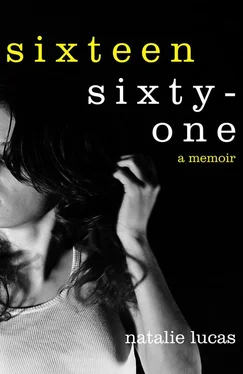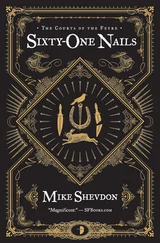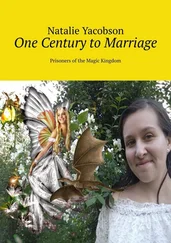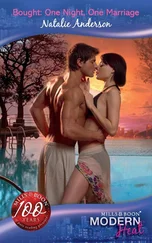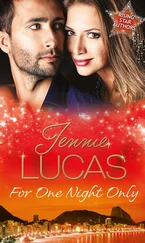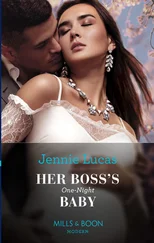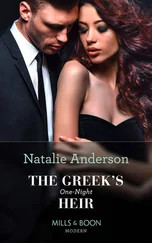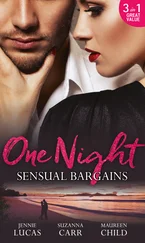NATALIE LUCAS
Sixteen, Sixty-One
A memoir
authonomy
by HarperCollins Publishers
For Trish, who saved my life
Table of Contents
Title Page NATALIE LUCAS Sixteen, Sixty-One A memoir authonomy by HarperCollins Publishers
Dedication For Trish, who saved my life
Preface Preface 14th May 2007 Dear Matthew Dear Mr Wright Dear Albert Sumac Dear Bastard Dear Ghost, My therapist keeps asking what I’d say to you if I had the chance. I wonder this myself: what will I say if we bump into each other when I return home this summer? I see your grey eyes coolly inspecting my appearance, noticing I’ve put on weight and look plainer with my hair this length. I imagine you composing an email after the event, though you no longer have my address, so perhaps it’ll be a letter. It will tell me I’ve turned into my mother or that I was cruel to return or that you’re shocked by how evil I’ve become. The worst thing you could write would be that you’re proud of me. None of this will have been provoked. I see myself still moving on the same strip of pavement, heading for a collision, and I see the moment of horrified surprise that will wash your tanned face of its careful persona, a flash of reality, followed by your collecting yourself, straightening your spine and telling me how nice it is to see me, how was studying abroad? But I cannot see my own face in this. I cannot form a response, hysterical or otherwise. All I can picture are fantasies of keying your car and smearing pig’s blood on your door, of scratching the letters P-A-E-D-O on your bonnet and hurling bricks through your French windows. Sometimes I scare myself thinking I actually would post a petrol bomb through your letterbox if I could be sure Annabelle was out. And if I wasn’t a wimpy English Literature student with no idea how to make a petrol bomb. I imagine you now, reading this and laughing. This means you’ve won, doesn’t it? You are still inside me. At sixteen, you filled me with love and that was bad, but now you fill me with hate and this is worse. I hate that you have this power still. Are you flattered? Maybe this is better for you: most people can be loved, there is nothing extraordinary in that. Even the plebs you scorn have their Valentine’s cards and wedding bands. But how many people are utterly despised? How many people are in someone else’s thoughts every day and in their nightmares every night? You should be proud: you’ve achieved some kind of immortality, even if you haven’t written that book you said you would, filmed your screenplay, or established your name. I hate you by any name. Sincerely, Nat Harriet Lilith Natalie
Part One PART ONE
Chapter 1
Chapter 2
Chapter 3
Chapter 4
Chapter 5
Chapter 6
Chapter 7
Chapter 8
Chapter 9
Chapter 10
Chapter 11
Chapter 12
Chapter 13
Chapter 14
Part Two
Chapter 15
Chapter 16
Chapter 17
Chapter 18
Chapter 19
Chapter 20
Chapter 21
Chapter 22
Chapter 23
Chapter 24
Chapter 25
Chapter 26
Chapter 27
Part Three
Chapter 28
Chapter 29
Epilogue
Thanking
About Authonomy
Footnotes
Letter 1 transcript
Letter 2 transcript
Letter 3 transcript
About the Book
Copyright
About the Publisher
14th May 2007
Dear Matthew
Dear Mr Wright
Dear Albert Sumac
Dear Bastard
Dear Ghost,
My therapist keeps asking what I’d say to you if I had the chance. I wonder this myself: what will I say if we bump into each other when I return home this summer? I see your grey eyes coolly inspecting my appearance, noticing I’ve put on weight and look plainer with my hair this length. I imagine you composing an email after the event, though you no longer have my address, so perhaps it’ll be a letter. It will tell me I’ve turned into my mother or that I was cruel to return or that you’re shocked by how evil I’ve become. The worst thing you could write would be that you’re proud of me.
None of this will have been provoked. I see myself still moving on the same strip of pavement, heading for a collision, and I see the moment of horrified surprise that will wash your tanned face of its careful persona, a flash of reality, followed by your collecting yourself, straightening your spine and telling me how nice it is to see me, how was studying abroad?
But I cannot see my own face in this. I cannot form a response, hysterical or otherwise. All I can picture are fantasies of keying your car and smearing pig’s blood on your door, of scratching the letters P-A-E-D-O on your bonnet and hurling bricks through your French windows. Sometimes I scare myself thinking I actually would post a petrol bomb through your letterbox if I could be sure Annabelle was out. And if I wasn’t a wimpy English Literature student with no idea how to make a petrol bomb.
I imagine you now, reading this and laughing. This means you’ve won, doesn’t it? You are still inside me. At sixteen, you filled me with love and that was bad, but now you fill me with hate and this is worse. I hate that you have this power still. Are you flattered? Maybe this is better for you: most people can be loved, there is nothing extraordinary in that. Even the plebs you scorn have their Valentine’s cards and wedding bands. But how many people are utterly despised? How many people are in someone else’s thoughts every day and in their nightmares every night? You should be proud: you’ve achieved some kind of immortality, even if you haven’t written that book you said you would, filmed your screenplay, or established your name.
I hate you by any name.
Sincerely,
Nat
Harriet
Lilith
Natalie
PART ONE
I was fifteen when my second life began.
It was the summer of 2000. Other things that happened that summer included Julie Fellows allowing Tom Pepper to touch her nipples for the first time, Sam Roberts claiming to have gone all the way with Rose Taylor and her denying it, Wayne Price getting permanently excluded for selling his crushed-up medication on the playground, Mrs Forman resigning her post as head of English amid rumours of an affair with the new science teacher, Pete Sampras winning his thirteenth Grand Slam title at Wimbledon, the leaders of North and South Korea meeting for the first time and the News of the World campaigning for new legislation giving parents the right to know whether a convicted paedophile lived in their area.
Sheltered from such dramas, my first life had been pretty regular. I grew up in a small town in the countryside. I had a mother, a father and a brother. My parents separated when I was eleven, but my mum, my brother and I only moved across town, a few streets away. After we moved, I fell out with my dad for a few years. He began dating twenty-three-year-olds, going to raves and acting like a teenager. I began revising for my SATs, reading books and swapping notes with boys in class. I had my first kiss when I was eleven – with Harry Heeley on the bus back from swimming practice while Kayla Weatherford timed us with her digital watch and Danny King looked out for Mrs Rice walking up the aisle. Shortly after that I started secondary school, where I held hands with Ben Legg, Robbie Burton, Chris Price, Michael Peterson, Stephen Hunt, Simon Shaw, Steven Critchley, David Robson, Gavin Gregs, Reece Cook and a guy at youth club known as Spike.
My favourite item of clothing was a floor-length denim skirt I could hardly walk in. My dark blonde hair reached my shoulder blades in a thick tangle, curtaining my face when I wanted to hide from the world. I’d recently purchased my first pair of tweezers and a box of Jolen personal bleach but had yet to use either, thus noticeable hairs shadowed both my upper lip and between my brows. I was short, not even five foot one – a situation I had tried to rectify a month ago by convincing my dad to spend £16 on five-inch silver platform sandals. I’d worn them with denim pedal-pushers to go shopping and would never again remove the Bowie-esque disasters from beneath my bed.
Читать дальше
